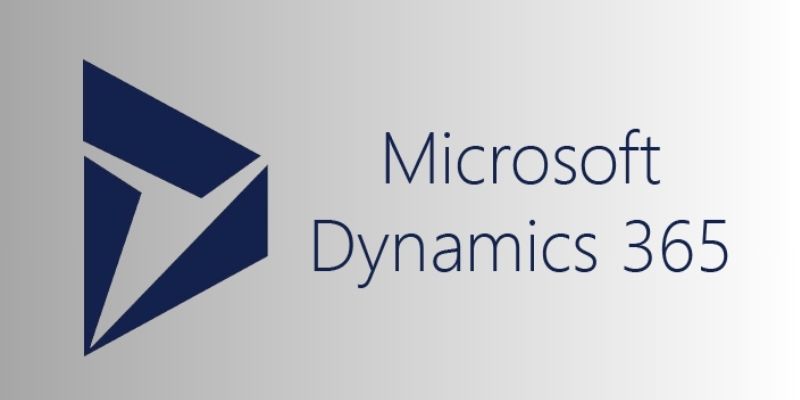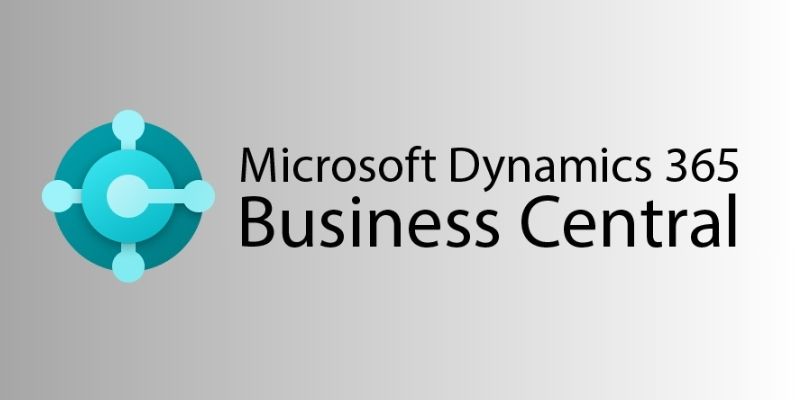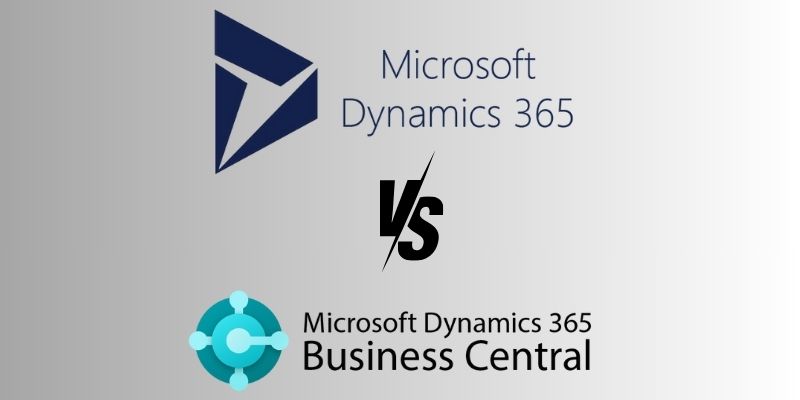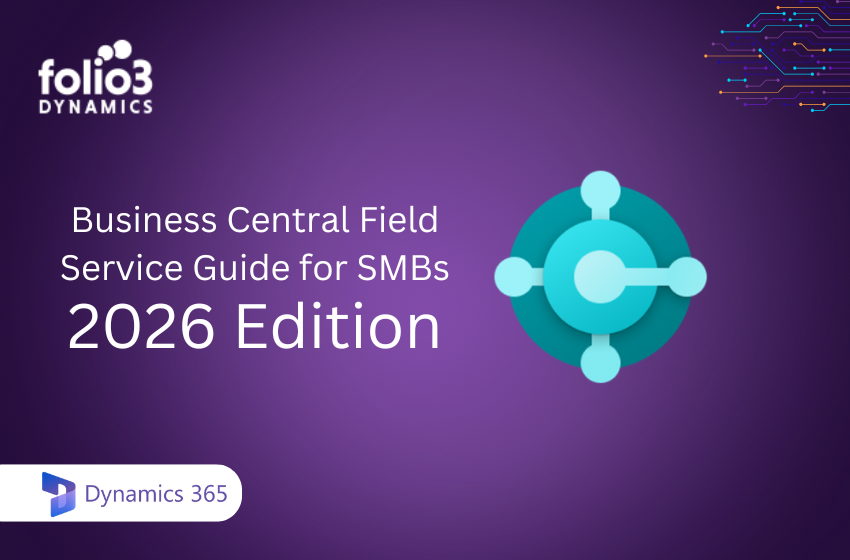Selecting the best enterprise resource planning (ERP) solution can be challenging. You may wonder which of Microsoft’s powerful products, such as Microsoft Dynamics 365 and Business Central, best suits your company’s requirements.
This article will help you make a smart choice by identifying the differences and advantages of Microsoft Dynamics 365 vs. Business Central. This comparative analysis will highlight important features, benefits, and costs, enabling you to choose the best option for your company.
Microsoft Dynamics 365 vs Business Central: Comparison Table
| Feature/Aspect | Microsoft Dynamics 365 | Business Central |
| Target Audience | Large enterprises | Small to medium-sized businesses |
| Deployment options | Cloud, On-Premises, Hybrid | Cloud, On-premises |
| Modules and Functionality | Comprehensive Suite Including CRM, ERP | ERP with integrated CRM capabilities |
| Customization | Highly Customizable and Scalable | Moderate Customization |
| Integration Capabilities | Extensive integration options | Strong integration within the Microsoft ecosystem |
| User Experience | Advanced may require training | User-Friendly, Intuitive |
| Pricing | Higher cost | More affordable |
| Industry Solutions | Broad Range of industry solutions | Primarily focused on SMB needs |
| Support and Maintenance | Extensive support options | Robust support tailored for SMBs |
Microsoft Dynamics 365
Dynamics 365 is a suite of intelligent business software that offers exceptional customer experiences and extraordinary operational efficiency. It allows organizations to lower costs while improving efficiency and simplifying operations.
Key Features of Microsoft Dynamics 365
Microsoft Dynamics 365 is developed for large enterprises that require an all-in-one solution. Its key features include the following:
- Unified Operations: Easily combine all your business processes with unified operations. You can connect finance, supply chain, sales, and customer service to organize your business operations. By having all these modules connected, your business can enhance efficiency.
- Customer Insights: With AI and analytics, you may obtain extensive customer data. These tools customize customer experiences by helping you understand your client’s preferences and behaviors. Data insights may also improve customer satisfaction and allow marketing plans to be planned accordingly.
- Sales and Marketing Automation: Use automation tools to improve your marketing and sales tasks. This covers campaign management, lead management, and detailed analysis to increase marketing ROI. Automating monotonous operations may free up time to concentrate on making growth-promoting plans.
- Financial Management: Strong financial management skills are required for complex financial transactions. The features include cash management, fixed assets, accounts payable and receivable, and a general ledger. These tools provide proper financial reporting and regulatory compliance.
- Field Service Management: Use real-time data and timing to improve field service operations. This smoothens resource scheduling, management of work orders, and on-time service delivery. Two benefits of better field service management are lower operating costs and increased customer satisfaction.
Benefits of Microsoft Dynamics 365
Using Microsoft Dynamics 365 holds immense benefits for large organizations:
- Scalability: It is easily scalable to meet growing business needs. As your business grows, Dynamics 365 can scale up to accommodate more users and provide additional functionalities. This scalability ensures that your ERP system grows simultaneously with your business.
- Customization: Microsoft Dynamics 365 is highly customizable to facilitate specific business needs. You can tailor workflows, dashboards, and reports to align with your business processes. This flexibility enables you to create a system that matches perfectly with your requirements.
- Integration: Its ability to connect with third-party apps and other Microsoft products is strong. This assures that Dynamics 365 and your current systems can merge easily. Integration features include connections to many CRM and ERP systems, Power BI, and Microsoft Office 365.
- Advanced Analytics: Utilize advanced analytics and AI to make data-driven decisions. These insights can help improve operational efficiency and customer satisfaction. Advanced analytics can provide predictive insights, helping you anticipate market trends and customer needs.
- Global Reach: Dynamics 365 is suitable for global operations as it provides multi-language and multi-currency support. This makes it an ideal solution for businesses operating in different countries. Its international reach ensures your business can operate across multiple regions and follow their local laws.
Pricing of Microsoft Dynamics 365
The cost of Microsoft Dynamics 365 changes according to the required users and modules. It is usually pricier due to the advanced functions and customization options.
Subscription plans with per-user or per-app pricing options may be adjusted to match business requirements. For example, the monthly cost of the Unified Operations Plan may be around $190 per user, but the Customer Engagement Plan would be about $115 per person. Dynamics 365’s cost is in line with its vast features and great degree of customization options.
Business Central
Microsoft Dynamics 365 Business Central is a leading cloud-based business management solution for small to medium-sized companies. It is embedded with powerful ERP (Enterprise Resource Planning) features and intelligent AI.
It helps companies make better choices and achieve outstanding results. Financials, operations, sales, and customer support are all integrated into a single system that can be customized to meet your business’s unique needs.
Key Features of Business Central
Business Central is aimed at small to medium-sized businesses (SMBs) searching for an affordable yet powerful ERP solution. Its major features include the following:
- Financial Management: Business Central provides complete accounting and bookkeeping support for fixed assets, accounts payable and receivable, and general ledger. This enables accurate financial reporting and efficient accounting procedures. Using these tools, you’ll be able to have a clear picture of your finances.
- Sales and Service Management: Improve your customer service and simplify sales procedures. Its salient features are sales order management, service order management, and customer relationship management (CRM). The above skills support you in increasing sales efficiency and managing client relationships better.
- Project Management: Effective project management skills to manage resources, monitor development, and guarantee on-time delivery. This includes project budgeting, resource allocation, and job costing. Projects handled well are likely to be finished on schedule and under budget.
- Supply Chain Management: Inventory and warehouse management can improve the efficiency of your supply chain. Some features are demand forecasting, inventory control, and purchase order management. Efficient supply chain management reduces expenses while enhancing client satisfaction.
- Human Resources: Basic HR features to manage employee information and recruitment processes. This helps maintain accurate employee records and manage payroll. Organized HR processes can lead to employee satisfaction and reduce administrative work.
Benefits of Business Central
Business Central holds immense benefits, especially for SMBs:
- Affordability: Business Central is cost-effective when compared to larger ERP solutions. It provides basic ERP features at a lower cost, making it affordable for smaller businesses. This affordability ensures SMBs can use powerful ERP tools without any budget constraints.
- User-Friendly: Its simple user interface needs minimal staff training. Users familiar with Office 365 and other Microsoft products can easily use the interface. Because of its user-friendliness, employees can quickly adapt to the system.
- Integration: It easily integrates with Microsoft Office 365 and other Microsoft products, ensuring that Business Central coordinates well with the tools your team is already using. Integration with Office 365 also means you can easily share data within applications.
- Flexibility: Flexible deployment options (cloud and on-premises) to meet business needs. You can choose the deployment model that best suits your IT strategy and budget, whether you prefer the security of on-premises deployment or the convenience of cloud-based deployment.
- Rapid Implementation: Quick implementation process to get it functioning quickly. Business Central’s efficient implementation process allows businesses to use the system quickly.
Pricing of Business Central
Business Central vs Dynamics is more affordable, making it a good option for SMBs. Its pricing is based on a per-user subscription model, with options for Essentials or Premium plans, depending on the required functionalities. The Essentials plan usually costs around $70 per user/month, while the Premium plan, including additional features like service management and manufacturing, costs around $100 per user/month.
Business Central’s flexibility in cost and features ensures that SMBs can use powerful ERP capabilities without a financial burden.
Microsoft Dynamics 365 vs Business Central: Which One is Best for You?
When deciding between Business Central and MS Dynamics, consider your business’s size, budget, and the needed functionalities.
If a large business needs more customization, advanced features, and the ability to integrate with many other systems, Microsoft Dynamics 365 is the better choice. It provides a quick solution to handle huge business processes and deep data analysis through advanced analytics and AI. This system is suitable for businesses with intricate needs and those operating worldwide.
On the other hand, if you are a small to medium-sized business looking for a cost-effective, user-friendly solution that integrates with other Microsoft products, Business Central might be ideal for you. It offers basic ERP functionalities at a lower cost and is very user-friendly. This system is perfect for businesses that need a solution that grows with them.
To further assist you in decision-making, explore our Dynamics 365 solutions and Business Central for more detailed information and customized recommendations.
These resources can provide specific information on each solution and help you determine the one that best suits your business needs.
Conclusion
The decision between Microsoft Dynamics 365 vs Business Central finally depends on your business size, needs, and budget. While Dynamics 365 offers an all-in-one and highly customizable solution for large enterprises, Business Central provides a more affordable and user-friendly option for SMBs.
Analyze your business needs and refer to this guide to make the best decision for your organization. With the right ERP solution, you can simplify your operations, enhance customer satisfaction, and attain business growth.
Microsoft Dynamics 365 and Business Central both have strengths. Dynamics 365 is better for large enterprises that require high customization, advanced features, and integration abilities. It supports complex business operations and provides advanced analytics, making it suitable for global businesses.
On the other hand, Business Central was developed for small—to medium-sized businesses that need an affordable, user-friendly solution. It offers basic features, easy integration with Microsoft products, and flexible deployment options. Business Central empowers SMBs to manage their operations easily and scale the ERP as they grow.
By understanding the fundamental differences between Microsoft Dynamics 365 vs Business Central, you can make an intelligent choice that meets your business goals.
Making the right choice in ERP software can boost your operational efficiency and support long-term growth. With the right system, your business remains competitive and ready to face future challenges in this competitive environment!





